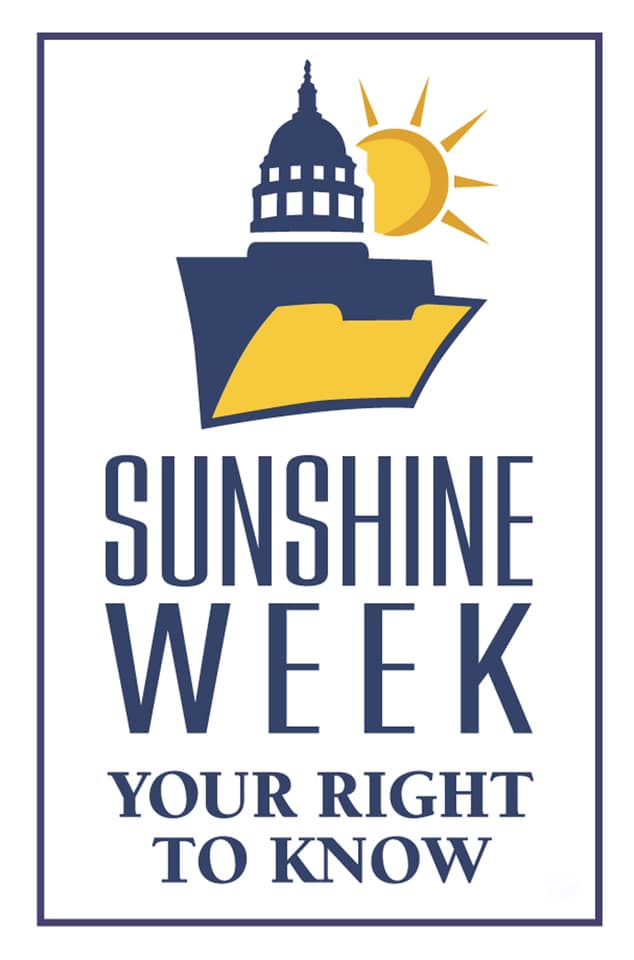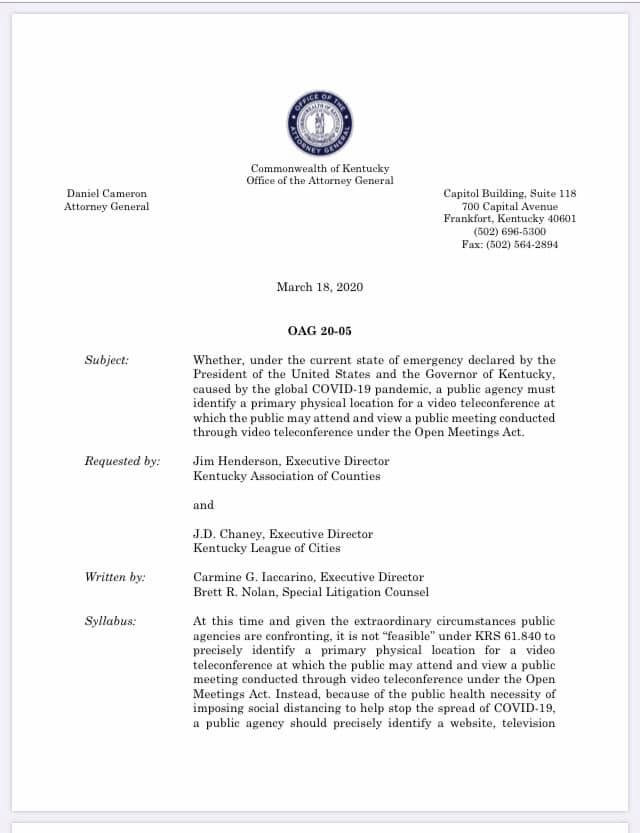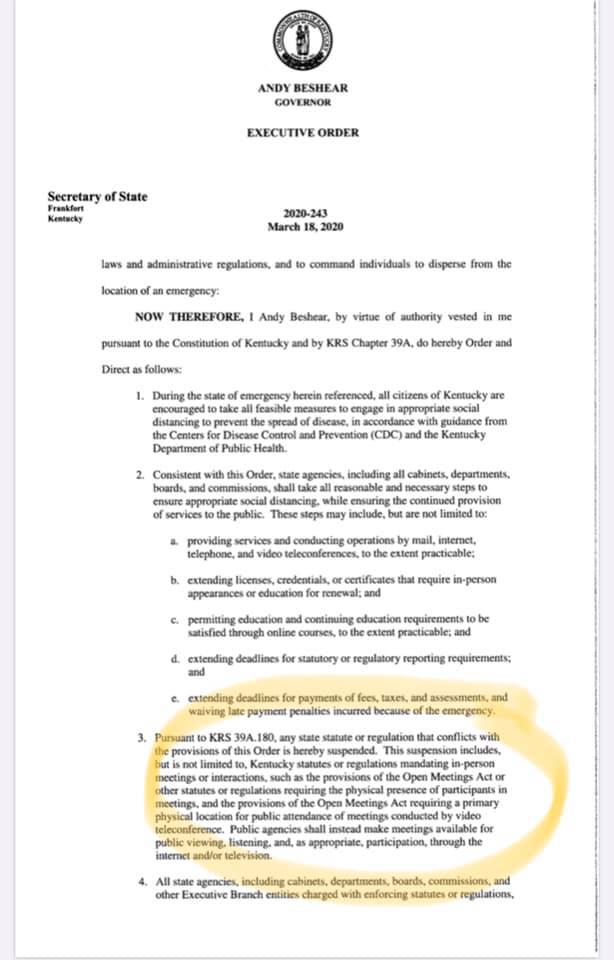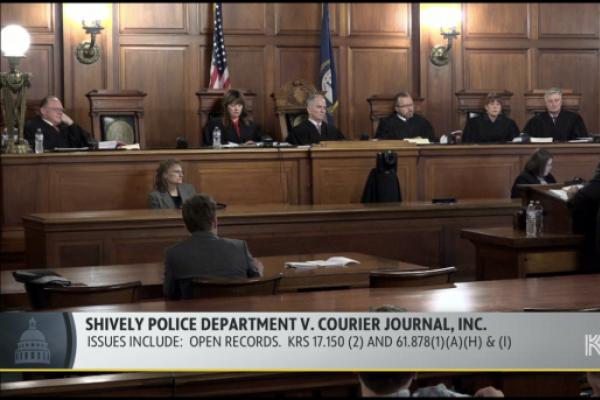



WHY IT MATTERS
The name of this post is "Why It Matters."
As someone who uses Facebook to share what I believe to be, in general, important information about our state's open government laws, I try to observe Facebook conventions.
And I rarely see a post with a title. But what we have witnessed in the past week justifies a break with convention.
The photos below are "virtually" — a word that has become all too familiar in open government messaging in in the past week — self-explanatory.
They signify the efforts of Kentucky's chief constitutional officers, Governor Andy Beshear and Attorney General Daniel Cameron, to secure Kentuckians' right to know in the midst of a health crisis the likes of which the state, country, and world have not known in recent history.
They reflect a genuine respect for those rights and concern for the health and welfare of Kentuckians, along with an understanding that essential public business, state and local, cannot and does not cease in the face of a pandemic.
They reflect proactive efforts to guide state and local officials and the public through this crisis without abandoning the rights we hold dear but in some cases have come to take for granted and, in others, to resent.
And *it matters.*
Some states —Tennessee for one — were desperate for official guidance on how public business would proceed until this afternoon. It matters that in Kentucky, we had guidance from the earliest days of the crisis — perhaps imperfect — but legally defensible guidance.
https://tcog.info/tcog-letter-to-the-governor-urging-action-and-safegua…
The Governor's and Attorney General's guidance is unfamiliar, uncomfortable, and slightly awkward. Many details remain to be worked out.
But *it matters* that they provided timely guidance in this crisis to ensure the uninterrupted conduct of public business in the sunlight of virtual public scrutiny
The majority leadership in the General Assembly, on the other hand, responded to the world health crisis by giving lip service to the public's right to know as they proceeded to purposefully dismantle them.
The blank sheet below signifies their silent disregard for the public's right.
What we witnessed during National Sunshine Week — oh, the irony — was a disconnect between those leaders who put words into action and those whose actions bely their words.
The majority leaders of the General Assembly, whatever your opinion of them, seized an opportunity to advance legislation, most nonessential except in their own minds, without regard to the right of the public to attend, participate, and engage.
The General Assembly deprived the public of its right to know by closing the Capitol Annex and offering random video access to their meetings.
Committee calendars changed on a whim. No notice was given to the public, certainly no written notice at least 24 hours in advance, how or where to view their meetings. If such notice was given, that notice was well hidden.
And they admitted "specially approved individuals" — a phrase that has yet to be clarified but appears to mean a bill sponsor's ally and a proponent of the bill — violating the fundamental prohibition on "selective admission."
Open Meetings 101: In the absence of an applicable exception authorizing a closed meeting, a public meeting that is open to one person is open to all people.
Some members of the General Assembly might want to reread KRS 61.810(1). Nothing excuses them from it except their own arrogance.
The General Assembly conducted this week's meetings largely free from the pesky interference of the public and the rule of a law it enacted in 1974 that guarantees the public's right to know.
Those who insisted on forging ahead endangered the public's health and — at the risk of being overly dramatic — endangered democracy as we know it.
Like it or not, *it matters*.



